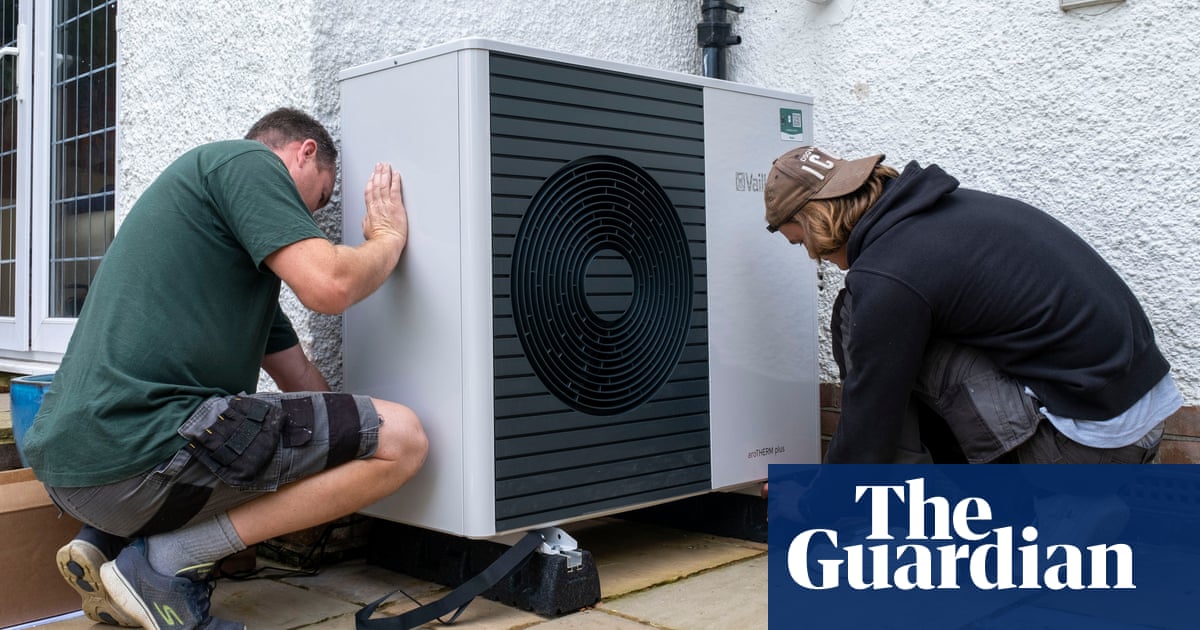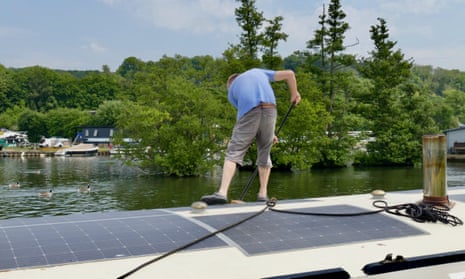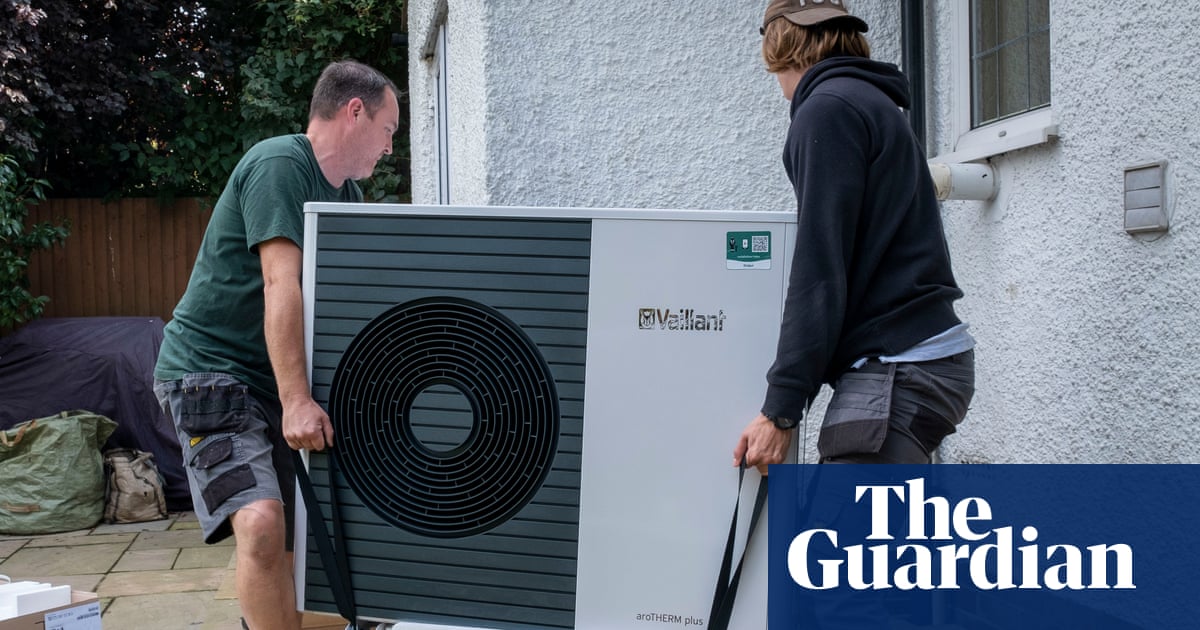
More than 2 million low-income households should be given a free electric heat pump to replace their gas boiler if the UK hopes to meet its legally binding climate targets, according to the government’s advisers.
Britain’s official infrastructure tsars have called on the government to spend up to £4bn every year for the next 12 years to cover the full cost of heat pump installations, and support energy efficiency improvements, for 1.5 million households on lower incomes in England.
It has also called on the government to spend up to £4.5bn a year to support energy efficiency improvements and heat pump installations across the public sector estate and social housing, which would include another 1 million low income households.
For other households the National Infrastructure Commission (NIC) has urged the government to offer £7,000 a year to each homeowner to help meet the cost of a heat pump, alongside a 0% finance option to cover the remaining upfront costs. The cost of a heat pump, plus installation, is typically between £7,000 and £13,000.
The multi-billion pound spending plan was revealed as part of the commission’s comprehensive assessment of the UK’s infrastructure. It urged the government to ensure that at least 7m buildings switch from fossil fuel heating to electric heating in order to meet the UK’s 2035 climate targets. It also ruled out a role for hydrogen in heating Britain’s homes.
“Heat pumps and heat networks are the solution. They are highly efficient, available now and being deployed rapidly in other countries,” the report said.
The government’s own infrastructure advisers gave their unambiguous support for the rollout of heat pumps just weeks after the prime minister vowed to water down a planned ban on new gas boilers by 2035.
The delay risks squandering a £5.5bn economic benefit for manufacturers and supply chain companies, and could leave households vulnerable to energy bill shocks as a result of surging global market prices, according to a separate report by the cross-party thinktank Social Market Foundation.
Heat pumps are considered critical to meeting the UK’s 2035 climate targets by halving the carbon emissions caused by heating buildings, which still accounts for almost a quarter of the UK’s fossil fuel demand.
But the government’s stated ambition for 600,000 heat pumps to be installed every year by 2028 has struggled to find public support due to the high upfront costs of installations and a lack of clear information.
Heat pump sceptics have argued that the UK’s housing stock is not suitable for electric heating, and have made a case for replacing fossil gas with clean-burning hydrogen. However, the commission found that, even without undertaking costly energy efficiency upgrades, heat pumps would be suitable for 90% of households, and be up to five times more efficient than using green hydrogen for heating.
“We are not arguing that heat pumps are suitable for every single property,” said Nick Winser, an energy industry veteran and a member of the commission. “In a small proportion of homes another electric heating option or perhaps a heat network may well be more suitable. What we are saying, unambiguously, is that we do not see any role for hydrogen in the future of home heating.”
The commission has backed hydrogen as a key tool for heavy industry to help cut their emissions, and has proposed a multi-billion pound project to link the UK’s industrial clusters via a hydrogen pipeline network.
The proposed network, linking Grangemouth in Scotland to the south of Wales via Teesside and the Humber, would run alongside a carbon transmission pipeline designed to carry carbon dioxide captured at factories to sites where they can be pumped into subsea storage facilities.
The hydrogen and carbon networks could cost up to £22bn, according to the commission.












